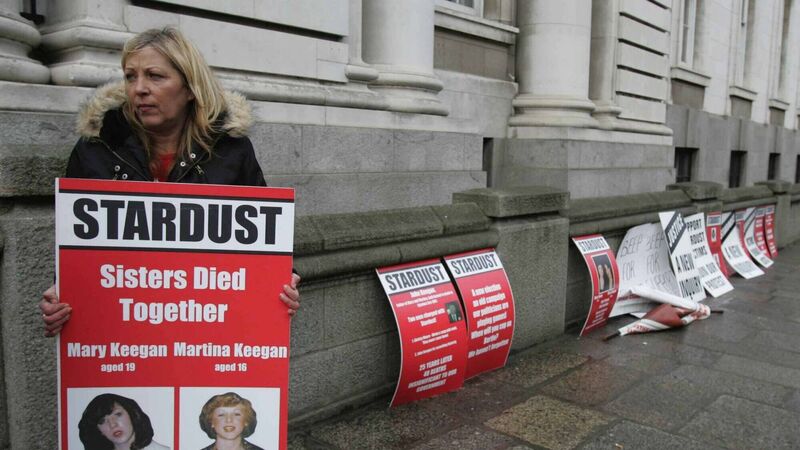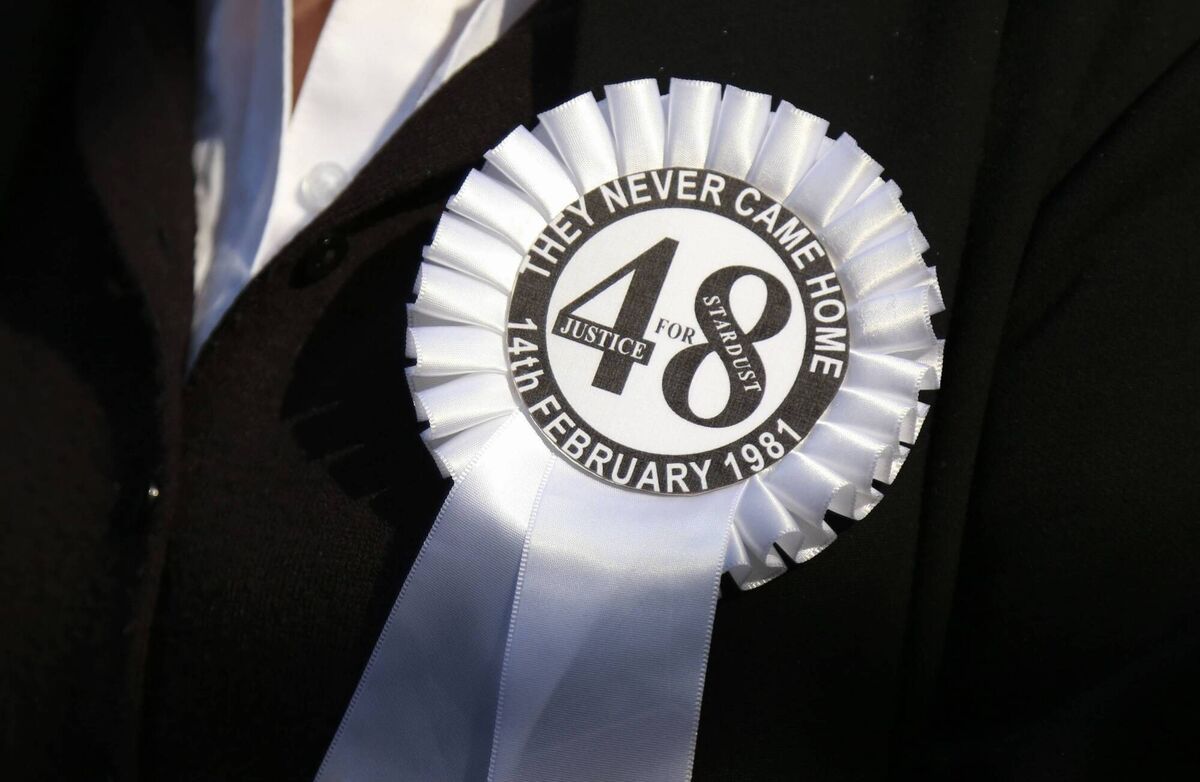Aoife Moore: 'We' are not the ones who failed Stardust families

Long before this Government insulted all of those who were imprisoned in mother and baby homes by leaking the findings of the commission report, a previous government leaked the results of one of the Stardust inquiries too.
Different mothers, who lost different babies, read about the conclusions that a different arm of the State had come to about how their children lost their lives in the Sunday papers too. We were outraged then also.
Most of these mothers are dead now — 40 years is a long time for a parent to live without their child, and even longer to go without answers that explain how they died.
Forty years of sleepless nights and nightmares, of missed birthdays and celebrations, replaced with 40 years of placards, postcards, press conferences, counselling, lobbying, and fighting a State which should have offered those answers freely and openly in the wake of the fire that burnt out 48 young people's chance at life.
Every glimmer of hope appears against the shadow of every false promise that came before — every inquest, every commitment at election time, and every new government promising they'll get to the bottom of what happened on Valentine's Day 1981.
Even now, with their fresh inquest granted, the Department of Justice drags its heels, with funding for families' legal teams stalled and the inquest left to simmer as more loved ones die, without answers and without the dignity of the State acknowledging their pain.
It is likely that on this day in 2022, I will be writing that these families still do not have the answers they seek as the inquest is likely to rumble on well into next year — an inquest in which the families will have to hear how their loved ones tried to escape from sealed windows or were crushed in the panic, confirming their worst nightmares or planting new ones.
The fact that these families hearing such traumatic information 40 years on is seen as a victory is a reflection on the warped version of justice we have come to expect.
One could argue that any State that would see elderly mothers pushed in their wheelchairs to the gates of their parliament year on year to fight for the most basic information into the death of their child is not one of which we should expect much mercy or understanding.
A government who rightly mourned with our neighbours as they watched the Grenfell tower enveloped in flames, while turning their face away to those in their own back yard who feel the heat of the Stardust blaze every night in their sleep.

The sad truth of the matter is that nothing really changes, despite our national merry-go-round of State apologies, in which we malign our forefathers, our society, the State, and all who played a role in whatever new cruelty we have decided enough time has passed to acknowledge.
The men who fill the suits differ — and now we might see a woman involved if they deign to include one — but the hollow sentiment that spouts from each government since 1981, and long before it, remains the same.
The inability of the State to look at those it has failed in the eye until they have dragged out every humiliating second of their own procrastination is one of the most profoundly repulsive and familiar things we have come to expect about official Ireland.
The Stardust families will get their apology too, eventually. Some Taoiseach will stand in the Dáil chamber and somberly say that we had failed them.
That we should not have forced them, for 40 years, to march on Merrion St and bang on doors and fill out postcards, that we should have listened in the days after the fire, to the witnesses, the fire service, the survivors, and their parents. We were wrong and we'll probably be sorry.
The collective "we", which did so much legwork when "we" apologised for the mother and baby homes, will be ushered back on to the Dáil floor once again when "we" eventually apologise to these families who were so traumatised by the worst atrocity in the history of the State.
The reality of Ireland in the case of the mother and baby homes, the Magdalenes, the industrial schools, and the Stardust fire is — there is no "we".
The only "we" the Stardust families are interested in is the public who supported them, who filled out postcards and backed their campaigns.
The "we" who held their hands, who cooked them dinner, who marched on cold mornings and dried their tears.
There is no "we" when it comes to the State, because not everyone in this State is considered equal.
The families of those who died in the Stardust fire are confident that had they come from a different part of Dublin, justice would have been forthcoming a long time ago, and who can blame them?
Those who don't matter don't deserve answers, and those without power don't receive them.
Ireland has always been kindest to those whose background demands respect.
If you don't want to take my word for it, ask someone in direct provision, or read about how young women with money and affluent backgrounds were treated in the mother and baby homes in comparison to those who were destitute.
For the Stardust families, the difference between Bonnybook and Donnybrook is a matter of kilometres and a huge leap in regards to respect.
Eugene Kelly, who fought for answers about how his 17-year-old brother Robert died in the fire, died alone at his home in Balbriggan in October last year, just days after he stood outside Dublin's Coroner's Court.
Speaking through tears, he said: “I feel they’re looking down on us and giving us the strength to keep pushing and get our justice. And mark my words, we’ll get our justice.”
Eugene Kelly died, like Christine Keegan in the months before, without the answers and the apology he was due.
There are 48 official victims of the Stardust tragedy, but the actions of this State has made victims of hundreds more.
When the apology comes, as it surely will, there will be no excuse for the indignity forced on innocent people who wanted help — there will only be blame, and it won't belong anywhere else but Dáil Éireann.





